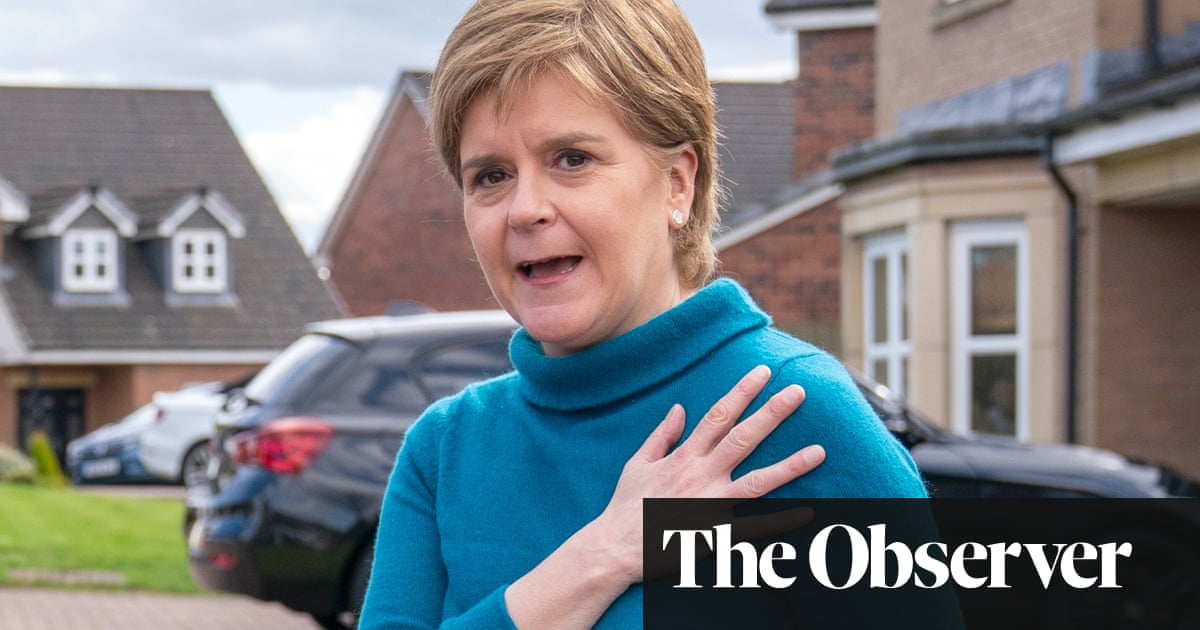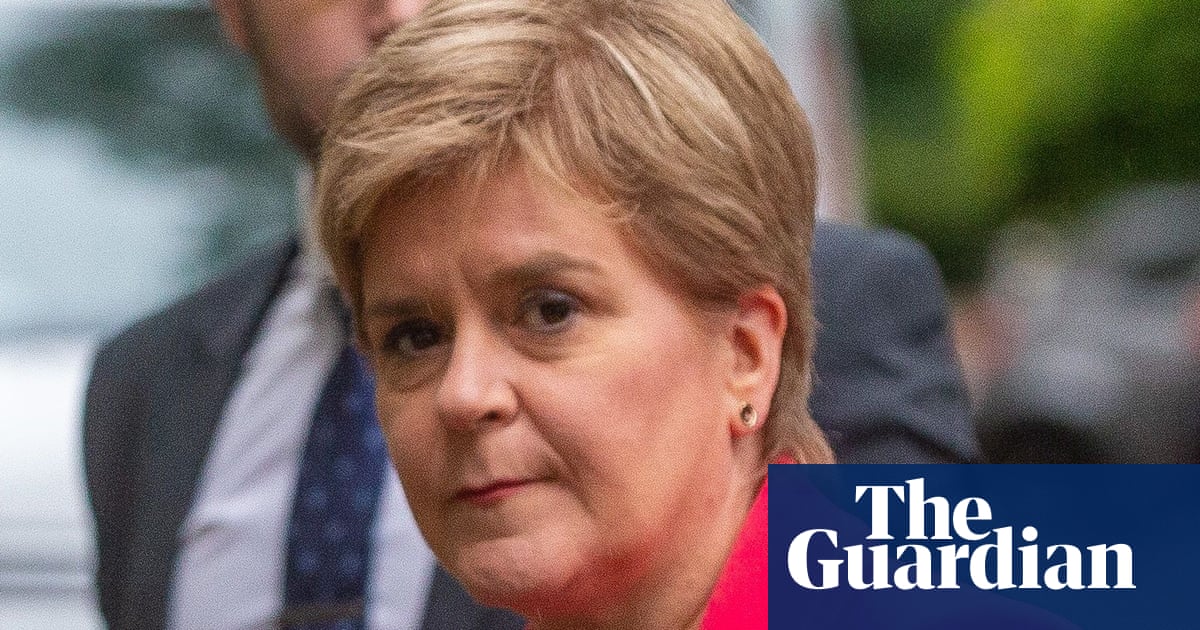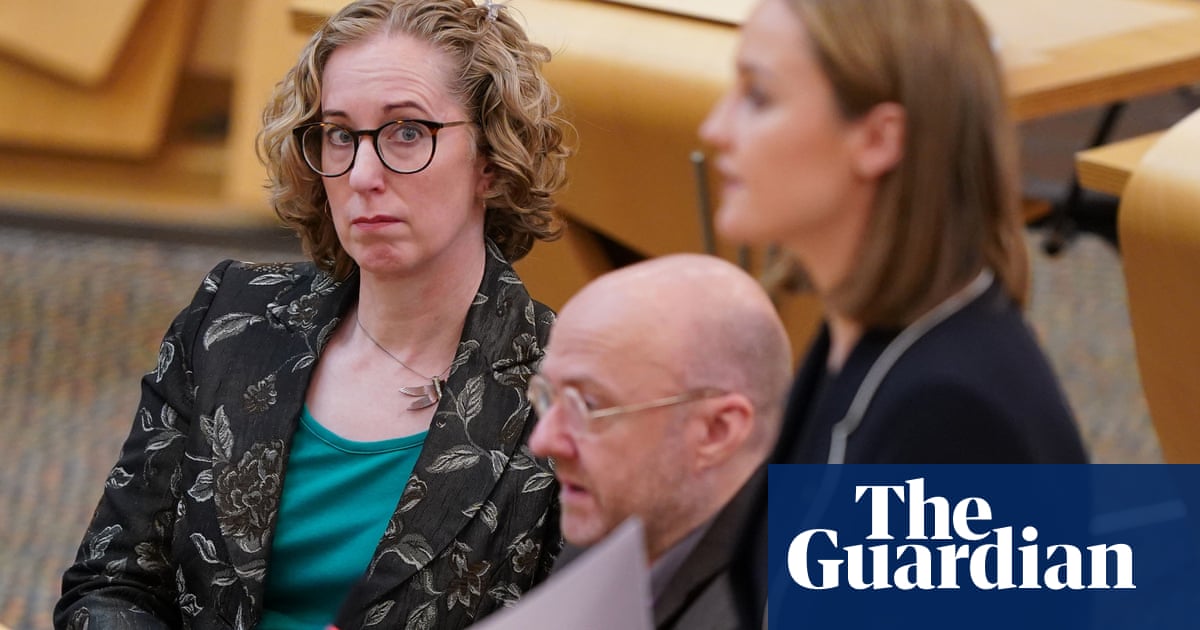
Nicola Sturgeon has opened formal talks with the Scottish Greens on a cooperation deal in government, in a move designed to cement a pro-independence majority at Holyrood and bolster its pro-climate credentials.
In a move mooted before the May elections, the first minister said the Scottish National party and Scottish Greens could jointly write policies on the climate crisis and the shift to net zero, in return for Green votes to back her spending plans and legislation.
The deal, which is likely to stop short of a full coalition agreement, could see the Greens win ministerial seats in future, Sturgeon told MSPs.
A deal would be used by Sturgeon to strengthen her hand in the battle with Boris Johnson’s government for the legal authority to hold a second independence referendum and to ensure any referendum legislation carries a clear parliamentary mandate.
With 64 of Holyrood’s 129 seats, the SNP is one short of an overall majority but with the Scottish Greens’ seven votes, an agreement would produce a formally aligned pro-independence majority of 14 votes. The Greens won eight seats on 6 May, but its MSP Alison Johnstone has been made presiding officer, making her neutral.
Speaking as she unveiled her government’s post-election policies, which will focus heavily on a post-pandemic recovery programme and investing in the NHS, Sturgeon made clear staging a referendum was her medium-term goal.
She said the UK government had no right to block that. “To do so would suggest that the Tories no longer consider the UK to be a voluntary union of nations,” she said. “And it would be profoundly undemocratic.”
Glasgow is playing host to the Cop26 global climate talks in November, adding to the political pressure on Sturgeon to agree a deal to bolster her government’s pro-climate credentials.
Speaking before the election, Patrick Harvie, the Scottish Greens’ co-leader, said his party would extract a high price for a deal. It would expect swingeing changes in transport policy, and an end to the SNP’s road-building programme; reversing the SNP’s commitment to North Sea oil extraction and significant investment in anti-poverty measures.
It is the first power-sharing deal at Holyrood since Labour and the Liberal Democrats ran coalition governments for the first eight years of devolution. The SNP ran minority governments for two of its three terms, relying largely on ad hoc deals with the Greens and, from 2007 to 2011, often the Scottish Tories. The SNP won a majority of seats in 2011.
If the two parties agree to a deal, it would need to be formally ratified by the Scottish Green party’s membership. It would be a historic opportunity for the party, which has so far failed to make the same political breakthroughs enjoyed by other Green parties in Europe.
Lorna Slater, the Scottish Greens’ other co-leader, newly elected to Holyrood on 6 May, told Sturgeon a deal would involve both parties moving out of their comfort zones and taking risks. “We need to roll up our sleeves and practise the grownup politics of negotiation, cooperation and consensus-building,” she said.
Anas Sarwar, the Scottish Labour leader, said Sturgeon was acting as if this was day one of a new government; the SNP had actually been in power for 5,136 days.
“Rhetoric is no longer enough; we need action,” he said. “It is good to see the Greens formalising their longstanding coalition of cuts but this country needs a bold and ambitious opposition, and a credible alternative.”
Douglas Ross, the Scottish Tory leader, told MSPs it took Sturgeon just 15 seconds from the start of her statement to mention the referendum. “Nicola Sturgeon speaks of bringing people together then pushes the most divisive proposal imaginable. This isn’t a speech to unite Scotland, it is a regurgitation of the SNP’s top priority: it sets up the same old versus them choice.”












